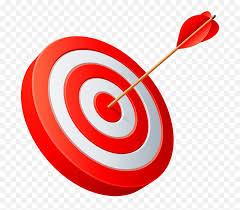
I think everybody realizes that the heart is a muscle, but not everyone understands that like all our muscles, it needs to be exercised. The good news is that while you are exercising your other muscles, the heart is getting a workout as well. And, just like the other muscles in your body work better when they are in shape, your heart works better when it's in shape too!
How do you know if your heart is in shape? How do you know if it's getting a workout? What is my target heart rate? How do I find my resting heart rate? All great questions to be asking so let's tackle them!
Many factors should be considered when asking the question of whether your heart is in shape or not. A simple test is to ask yourself how easily you get out of breath upon exertion. Do you get winded going up a set of stairs? If so, your heart is out of shape. Yes, your leg muscles are probably out of shape as well, but while climbing the steps those leg muscles demand more blood flow and if you get winded, that means your heart isn't capable of supplying them with adequate blood flow.
Another simple test is to check and know your resting heart rate. Smart watches are a great way to track this, but it is also something you can do yourself. As the name implies, your resting heart rate needs to be checked when you are at rest. The best time to do this is in the morning upon waking before you even get out of bed. You can find your pulse either on your wrist or right beside your throat on your neck. Once you feel your pulse, count the number of beats for 10 seconds and then multiply that number by 6. Or you could count the number of beats for a whole minute if you want. This number represents your resting heart rate, and it is read in beats per minute. According to most health authorities, a good resting heart rate for adults will be between 60-100 beats per minute. Also, a good rule of thumb is the lower the resting heart rate the better. Remember, the heart is a muscle and if it has the capacity to beat harder (because it is in shape), then it can pump more blood with each beat and therefore does not have to beat as much.
Target heart rate is a topic that gets a lot of attention in the fitness industry, and it should. However, it is a moving target... sort of. You first must know your maximum heart rate. This is a simple equation. Take 220 minus your age. The resulting number is your target heart rate. For example, a 50-year-old has a maximum heart rate of 170. Most health experts agree that it's not necessarily a hard and set number. A professional athlete probably has a higher max heart rate for their age and of course the reciprocal is true as well. Someone who is out of shape would have a lower max heart rate. However, using your max heart rate as a starting point, your target heart rate will be a percentage of your max heart rate.
Low intensity exercise usually results in your exercise heart rate in the 57-63% range of your max heart rate. Moderate intensity exercise will be a bit higher of course, in the range of 64-76%. Vigorous intensity exercise will put your heart rate in the 77-95% range. So, when we say "target heart rate" it truly depends on what your target is for that workout. I have always been a proponent of varying your workouts day to day. Some days will be short and intense, others long and less intense and of course anything in between.
Monitoring your heart rate during your workouts can help you know if you are hitting your target. If your heart rate is higher than your target is, you need to ease back on the intensity of that workout. If it's not quite high enough, then step up the intensity. Each level of intensity has different benefits which is why you should vary your workout styles. This article has a nice chart of the different percentages based on age and some different exercises to help you get to your target heart rate.
All of this talk about target heart rate, maximum heart rate, resting heart rate is all null and void if you aren't moving on a regular basis. If you aren't... get up and move! You can start from wherever you are.
If this information sparks some questions about your health, give us a call. You are unique and your care should be too. At Total Body Healthcare, you will get healthcare designed for you, not some cookie cutter plan used for everyone.
Dr. Ed
